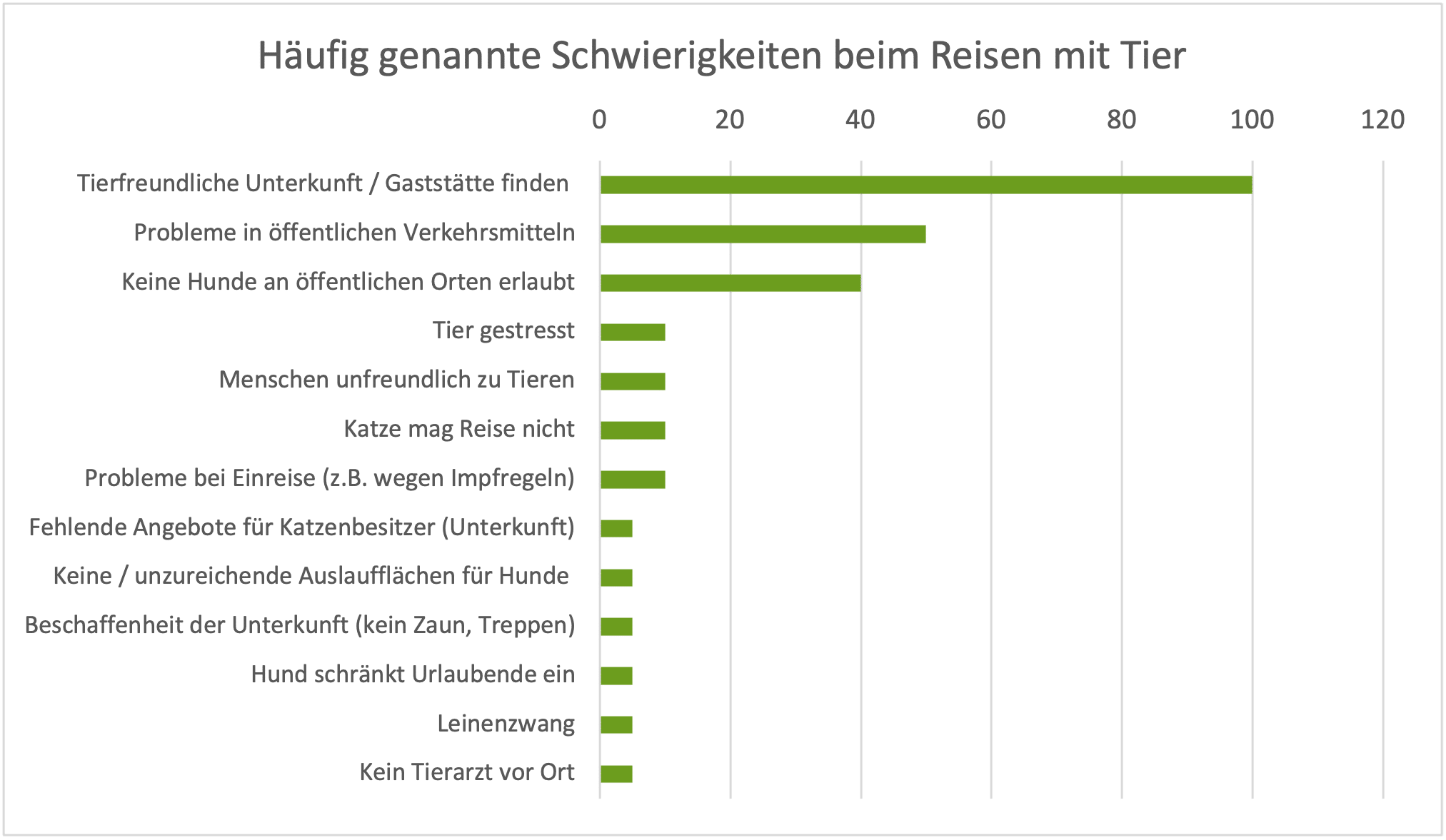
Survey shows: Most pet owners take their pet with them on vacation in 2021
After the pet boom in Corona times, more pet owners than ever are asking themselves questions such as: What do you need to consider when choosing a destination? And what do I have to do to make the trip a positive experience for my pet as well? The World Animal Welfare Society (WTG) gives tips and reveals which destinations are particularly popular for holidaymakers with animals this year.
A survey of more than 1,000 pet owners by the World Animal Welfare Society (WTG) has shown that almost 60 percent of respondents are planning a trip with an animal this year. When animals accompany their owners on vacation, they are overwhelmingly dogs (94 percent). All other animals are far less common on trips. The most common among them is the cat (4 percent), followed by horses and guinea pigs (each under 1 percent).
Almost half of those surveyed emphasized that vacationing without an animal was unimaginable. The animal is a family member who also belongs on vacation. “To experience shared experiences and the joy of the animal, to explore a new area, is simply beautiful,” one participant left in the comments.

When choosing a holiday destination in 2021, almost half of travellers are drawn to German holiday destinations. The other top destinations are Italy, France, the Netherlands and Austria. Long distances to the destination are therefore more likely to be avoided by pet owners, which could also be due to the pandemic. With a few exceptions, the participants refrain from long-distance travel when planning – especially with animals. This is also reflected in the choice of means of transport: 84 percent of people travelling with pets use the car. In second place is traveling by motorhome or camper van (7 percent), again an individual means of travel. Trains (4 percent) and airplanes (3 percent) apparently play only a minor role in traveling with animals this year.
The survey also shows that a third of pet owners have already had difficulties or problems in the past when traveling with animals. By far the most frequently mentioned problem was finding pet-friendly accommodation. Also widespread were problems when traveling by public transport and the prohibition of having dogs with you during activities on vacation (e.g. on the beach or in shops).

But with good planning and travel preparation, unpleasant surprises can usually be avoided.
Common difficulties in choosing animal-friendly accommodation can be prevented from the outset. For example, it is important to ask whether pets are allowed. For the travel budget, it must also be taken into account that daily flat rates for animals are charged and that an adapted final cleaning must be paid in holiday homes or apartments. “It is important that the animal feels as comfortable as possible in the holiday accommodation and can be undisturbed. Therefore, third parties should not have access to the accommodation, especially if the animal is alone,” says WTG Managing Director Katharina Kohn.
“A trip with an animal should definitely be a positive experience for all travelers – including the four-legged friends,” explains Katharina Kohn, Managing Director of WTG. “Sufficient lead time in travel planning is one of the most important factors for this to succeed.” Travel preparations should include having the animal checked by a veterinarian in advance and researching the contact details of a veterinary practice at the destination. It is also important to deal with the destination country or place with regard to the local rules for animals. A bag with the most important emergency utensils, e.g. wound spray and bandages, should also always be kept ready.
Pet owners should also take a close look at their way to their destination in advance and, for example, look for suitable resting places for dogs off the motorway.
Ultimately, it is crucial that the needs of the animal are sufficiently taken into account when travelling. “Then the chances are good that the holiday will bring many positive shared experiences for both humans and animals and at the same time strengthen the bond between animal and owner,” says Katharina Kohn.
Even if traveling without an animal is unimaginable for most people, the following should still apply: If it is already clear in advance that the well-being of the animal cannot be sufficiently taken into account on vacation or that the journey would be associated with a lot of stress for the animal, care by a third party should be considered: “An animal whose needs cannot be satisfied on vacation, better stay in good hands at home, in a guesthouse, with friends, family or neighbors,” says Katharina Kohn.
Interested parties can find a lot of other advice on travelling with animals at:
https://welttierschutz.org/reisen-mit-tieren/

